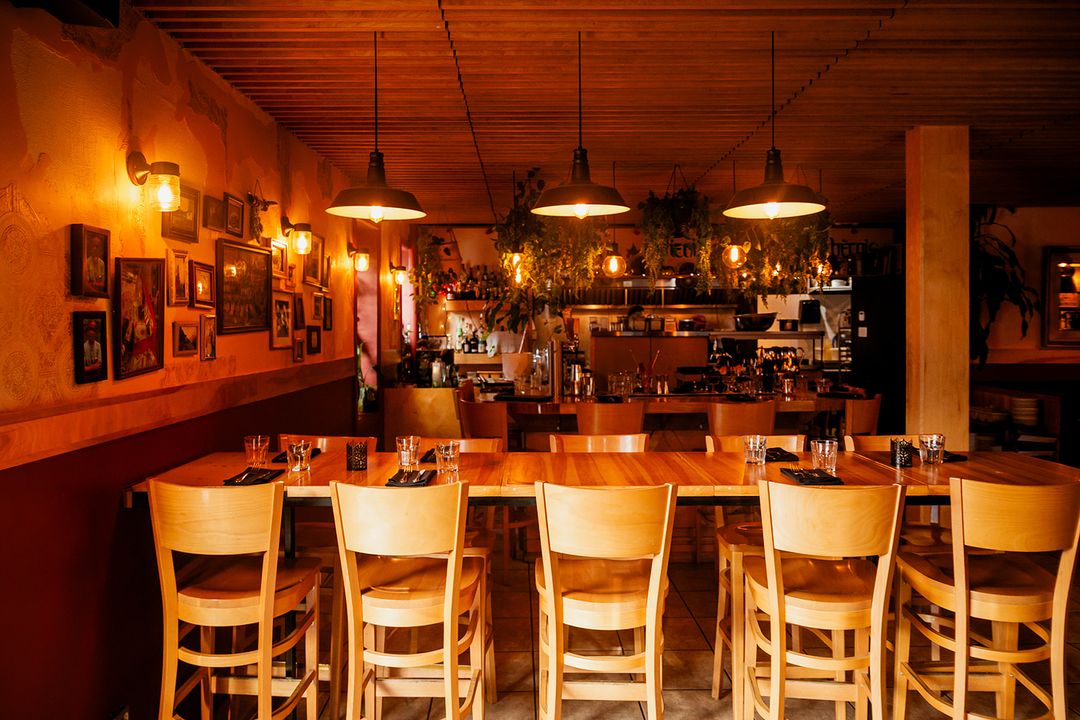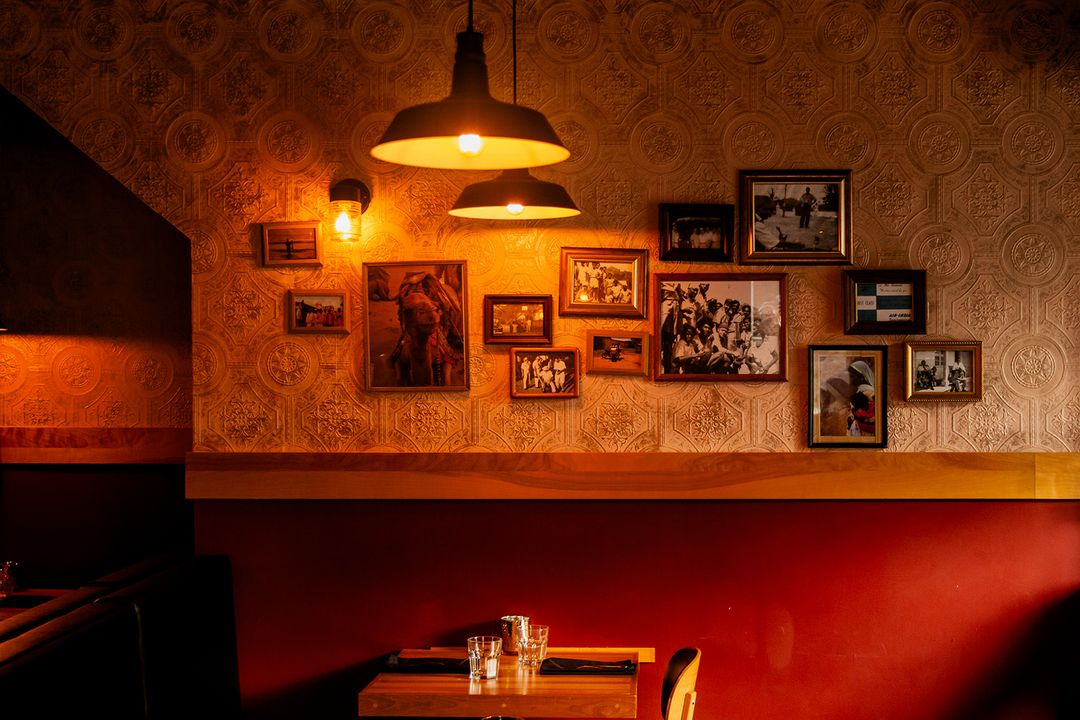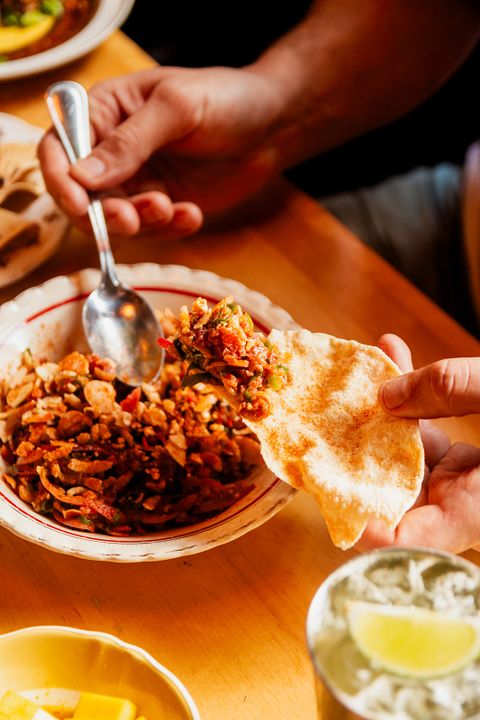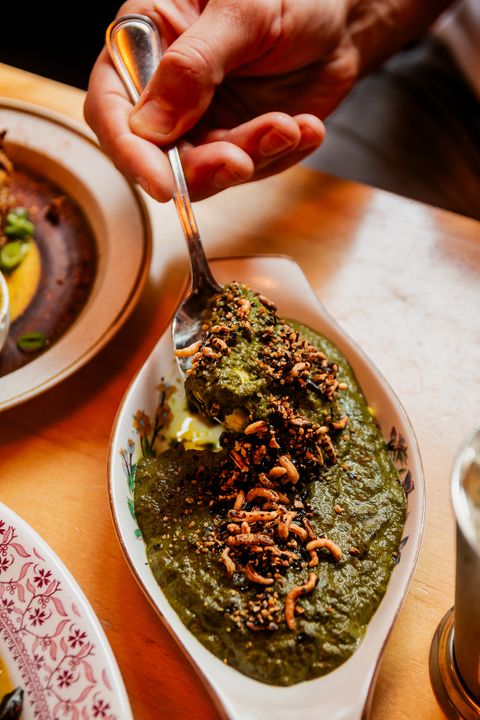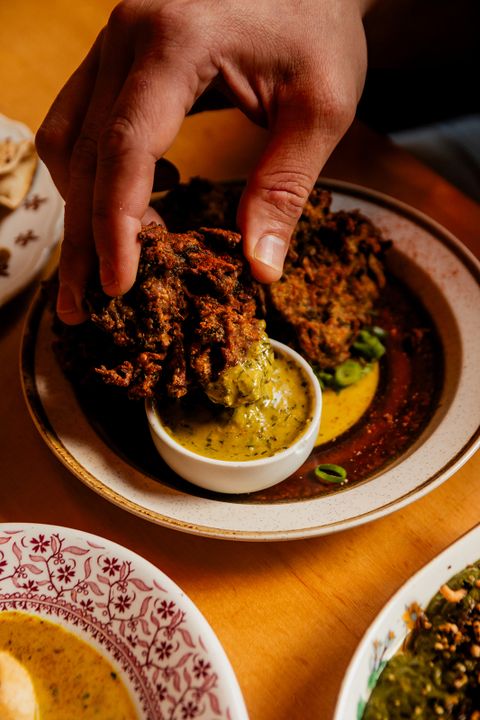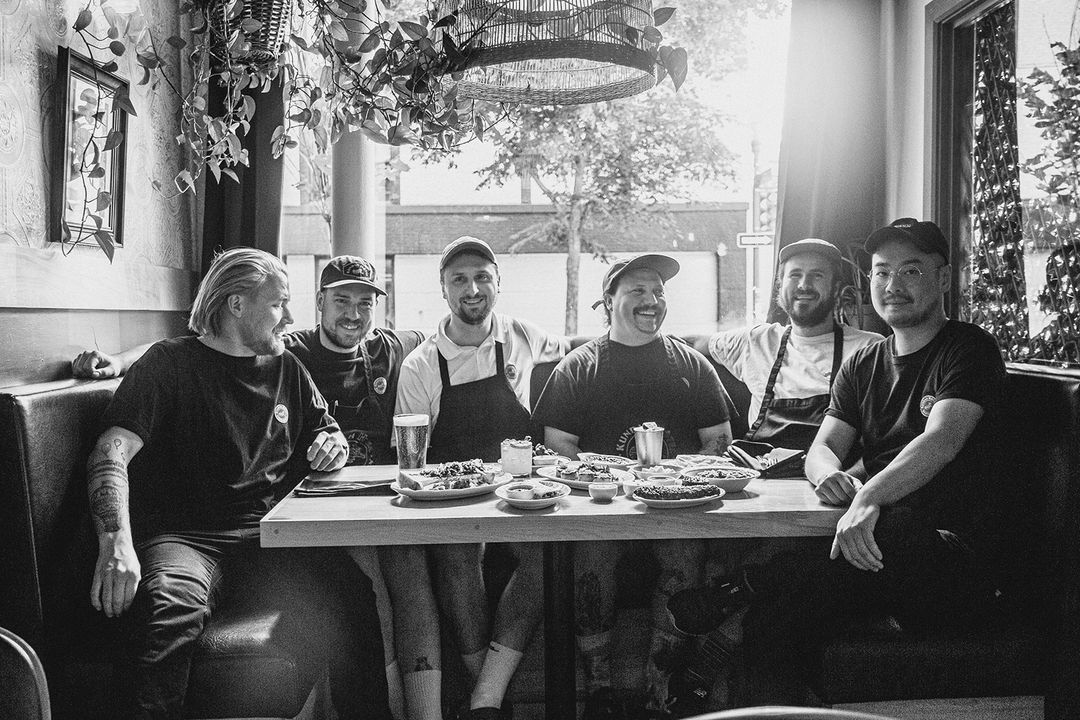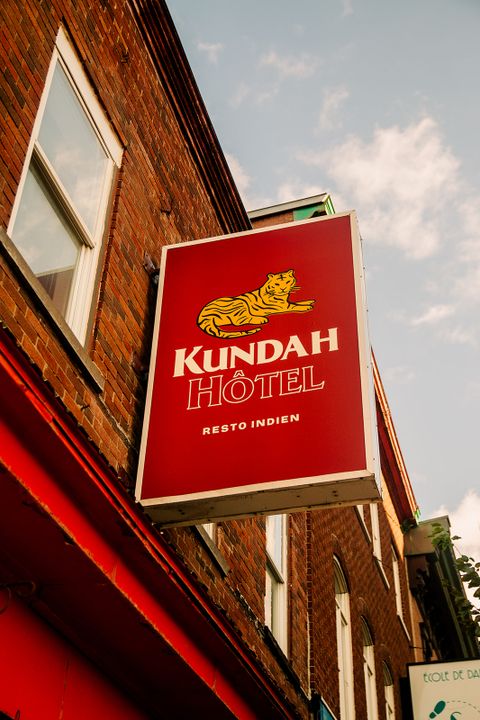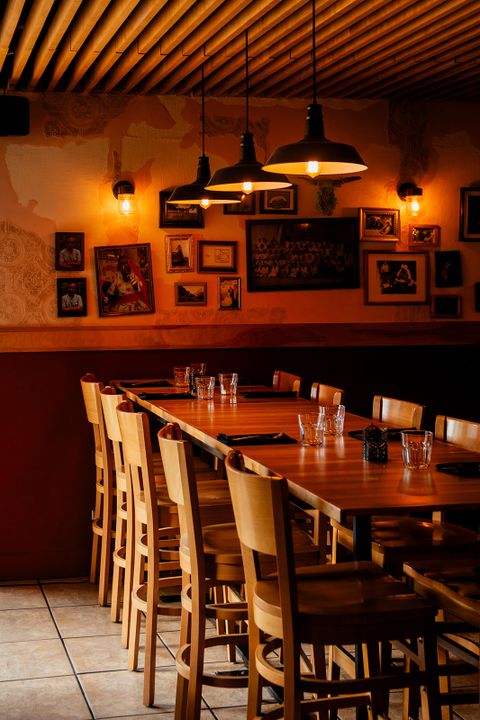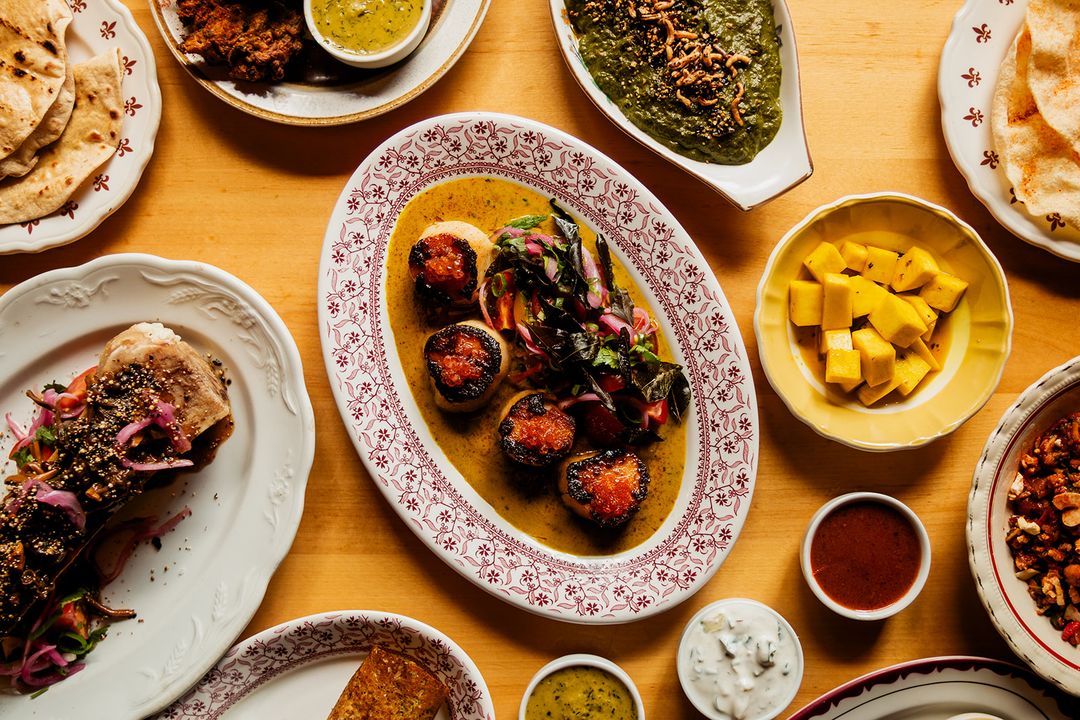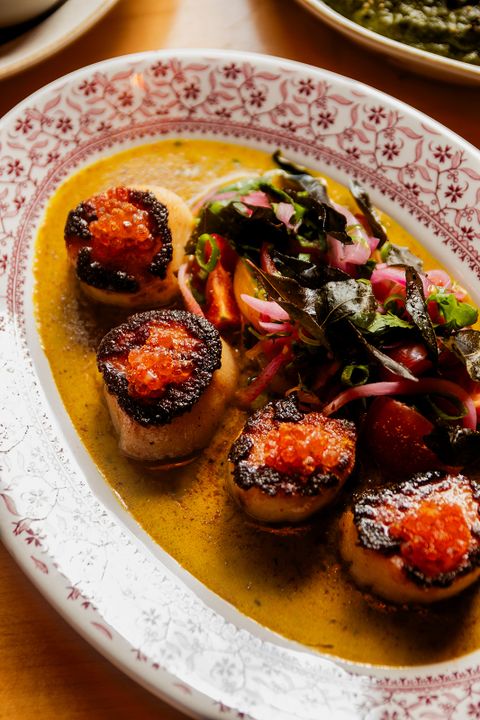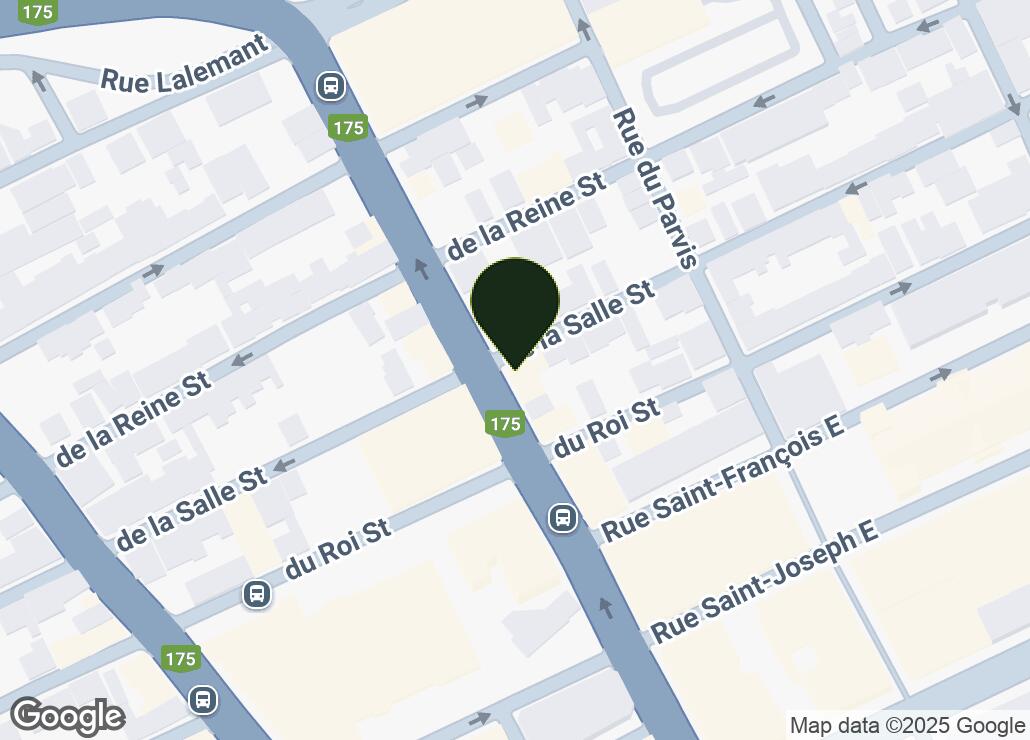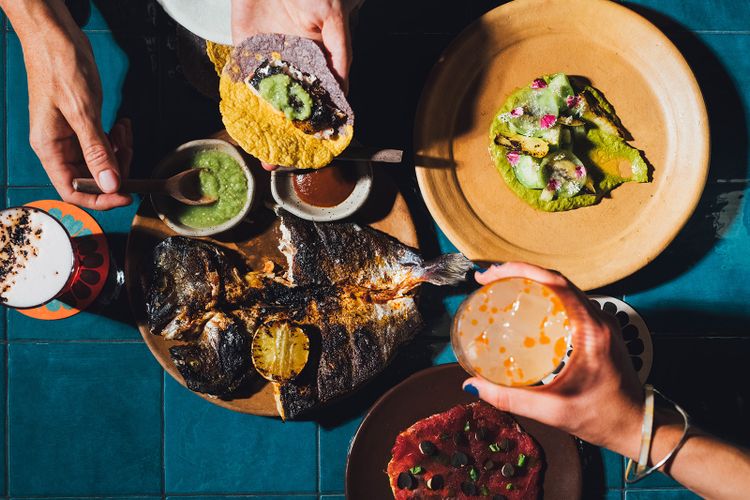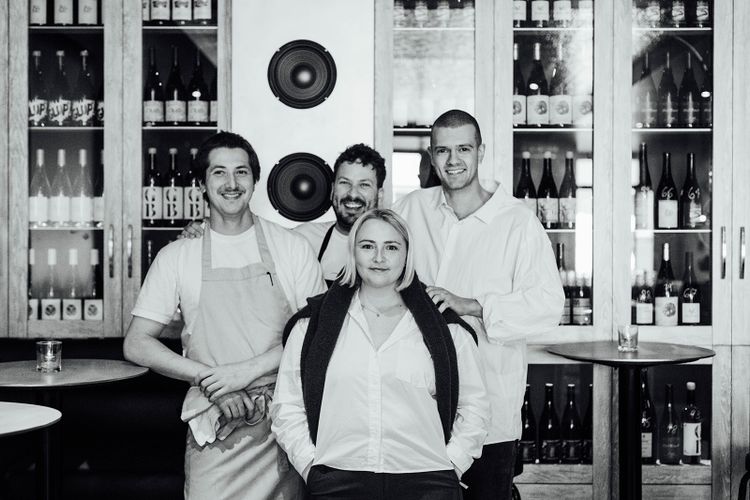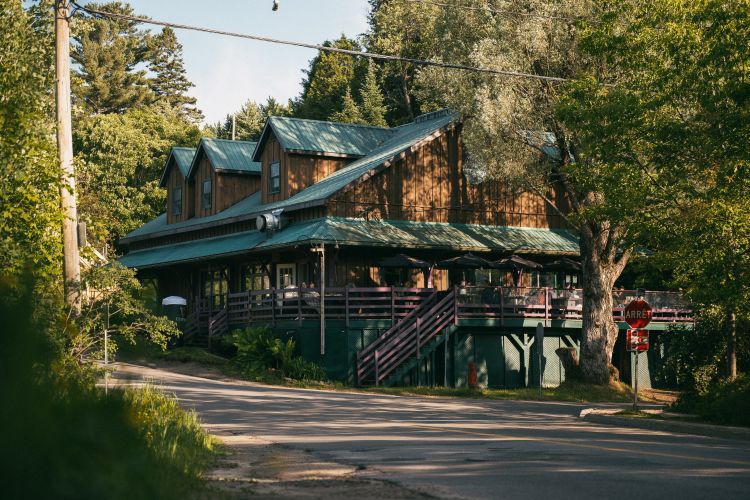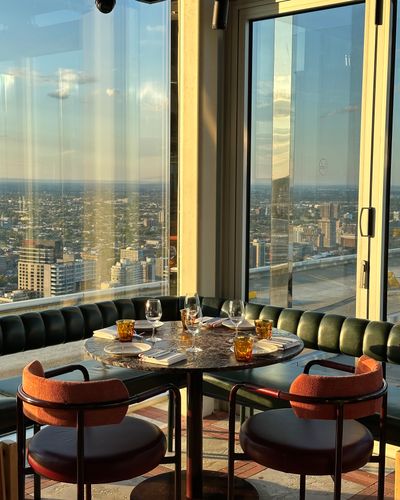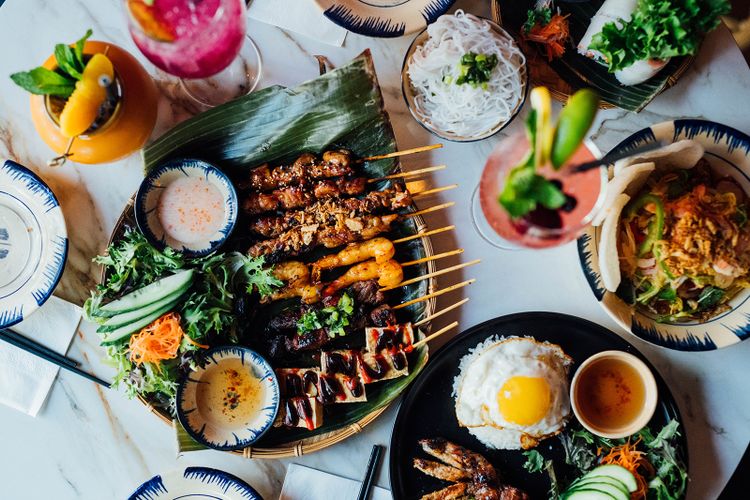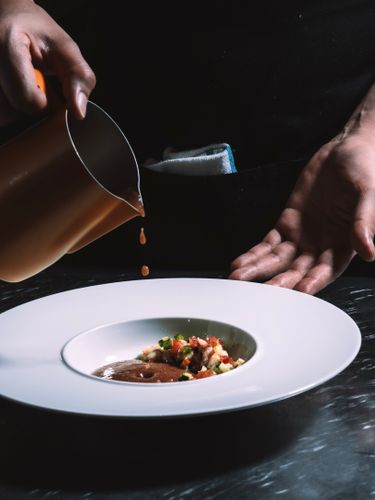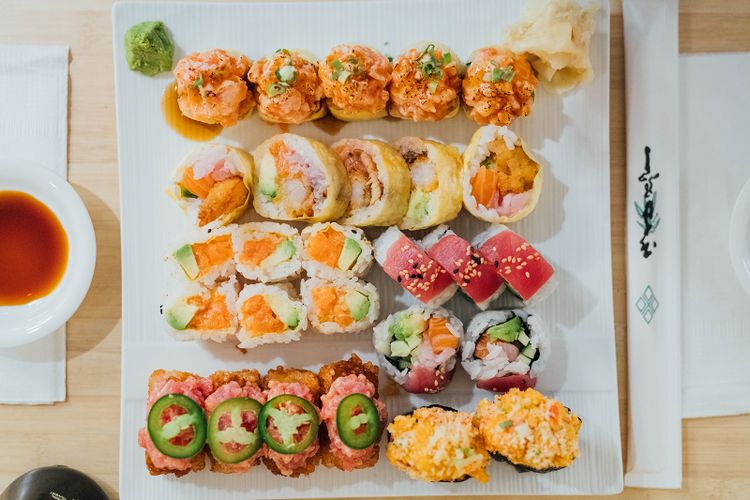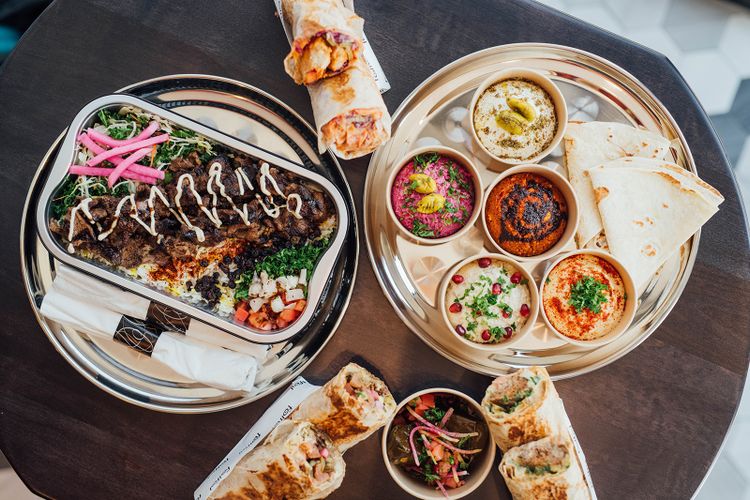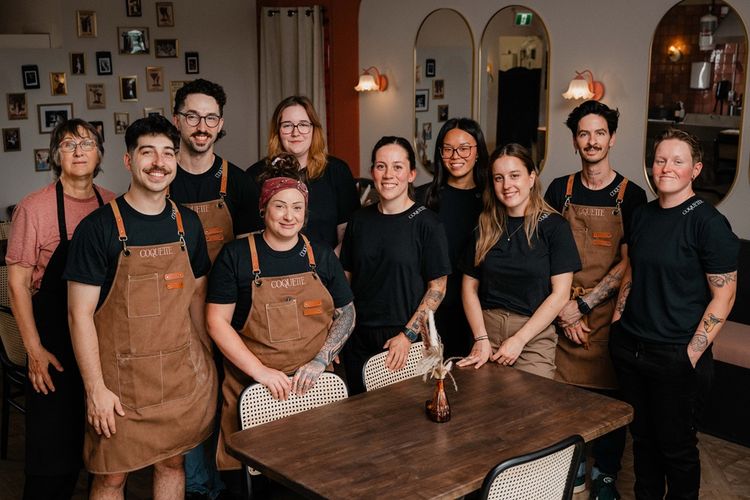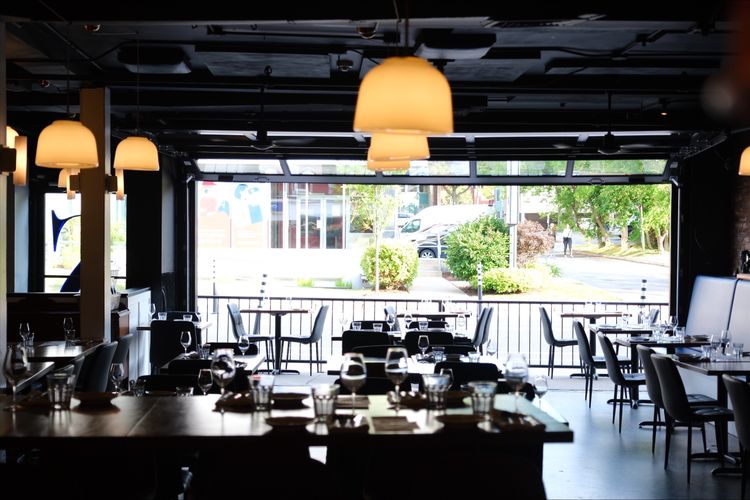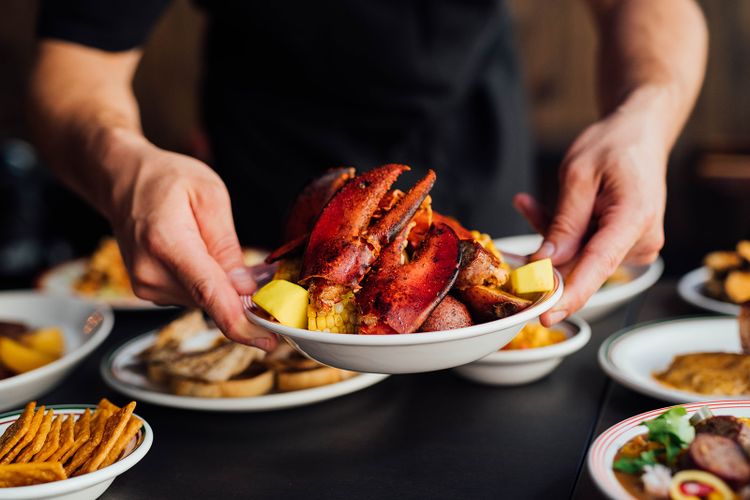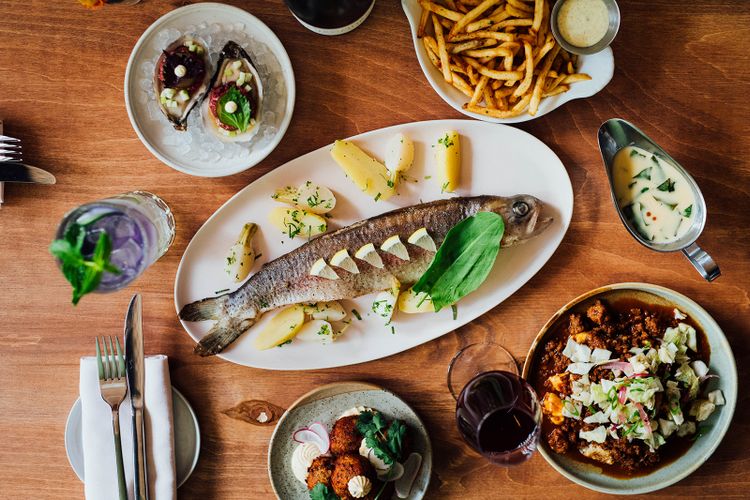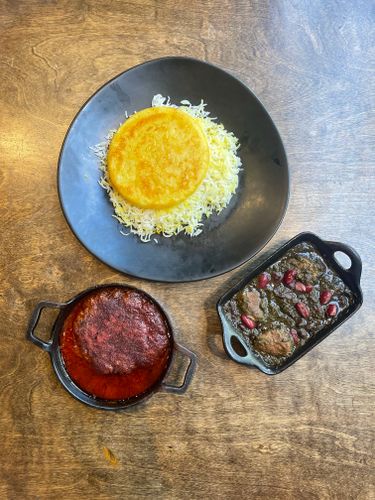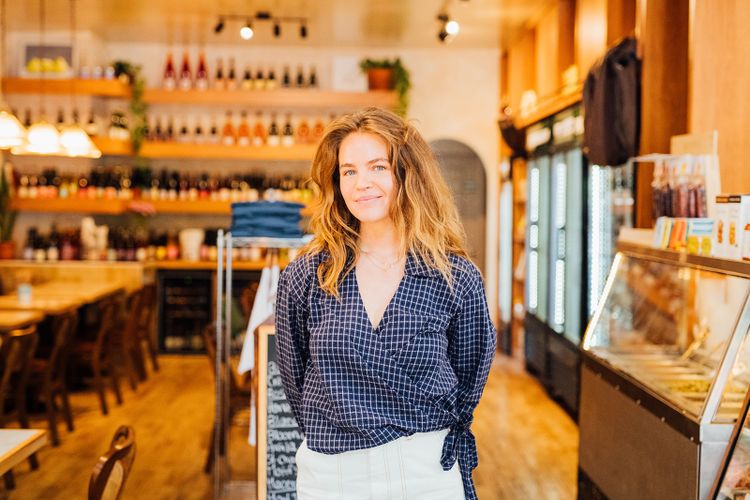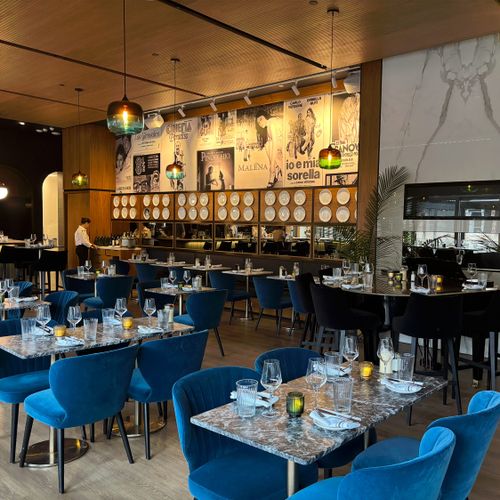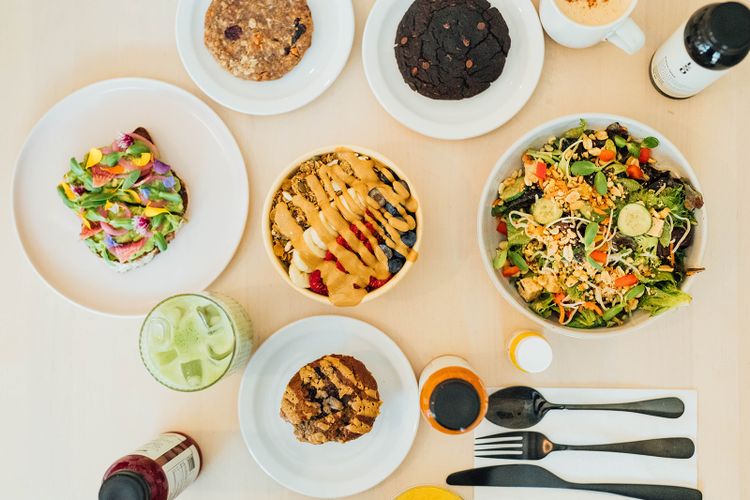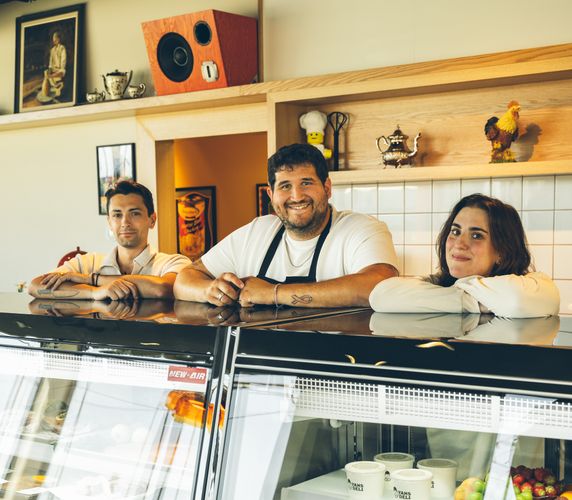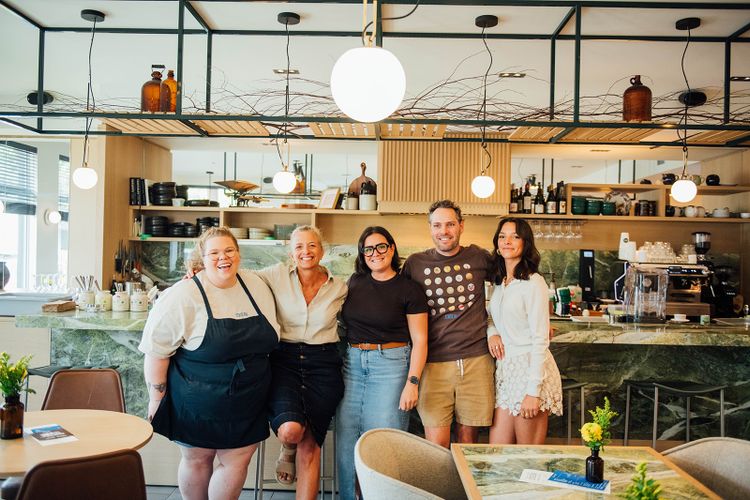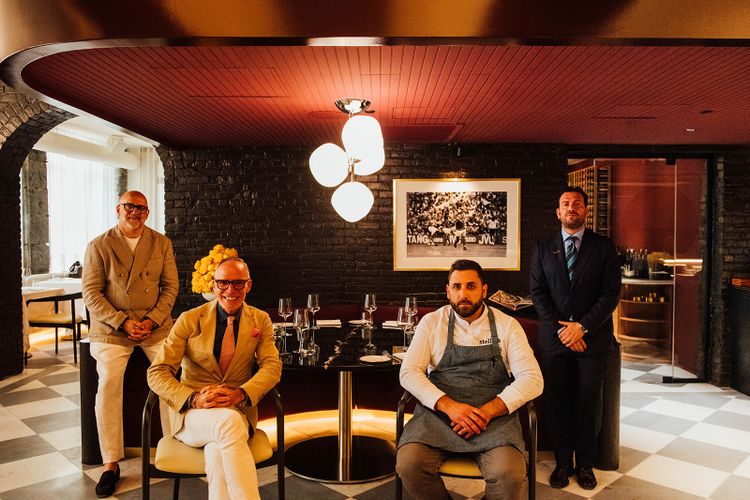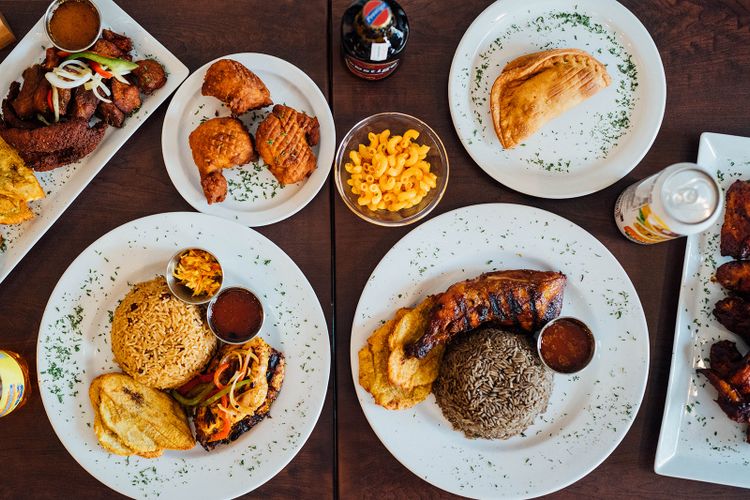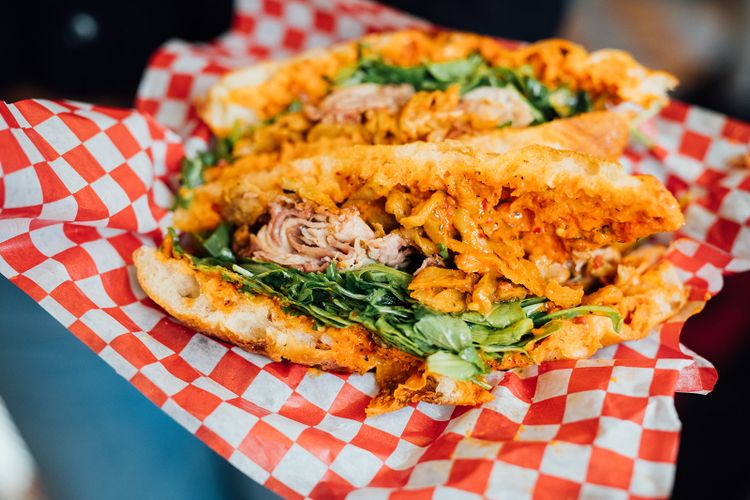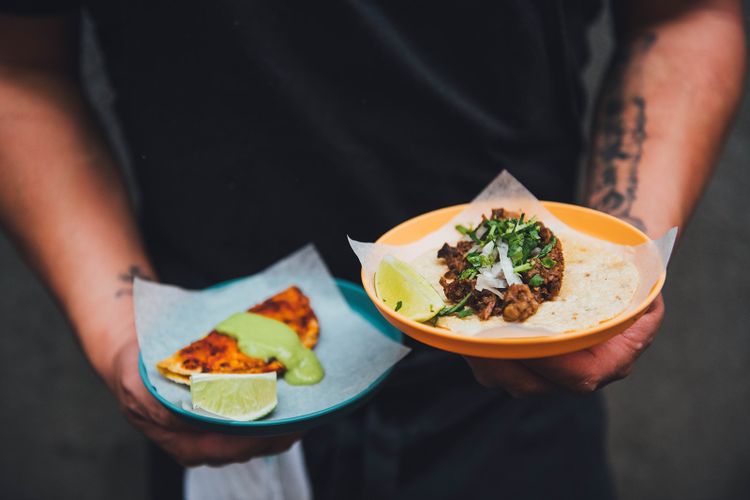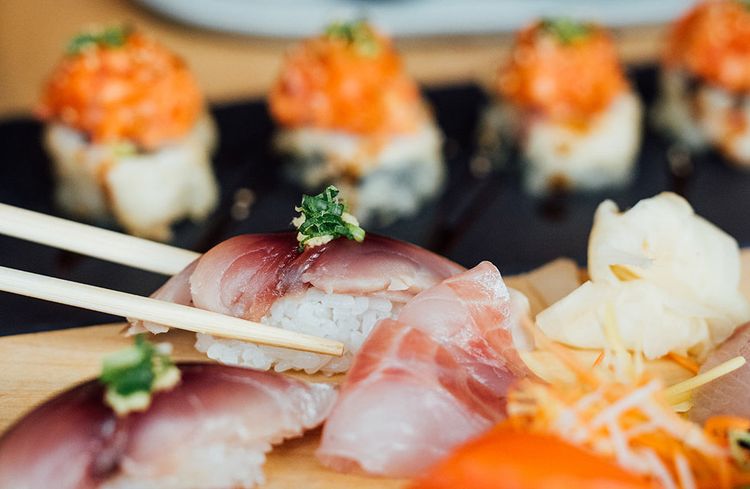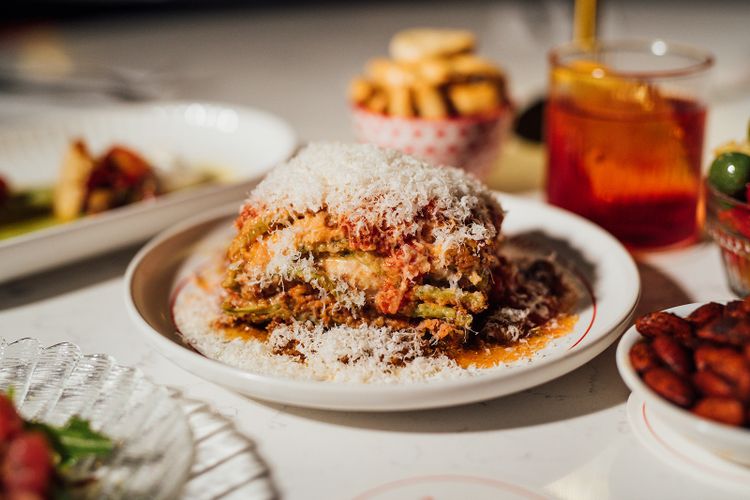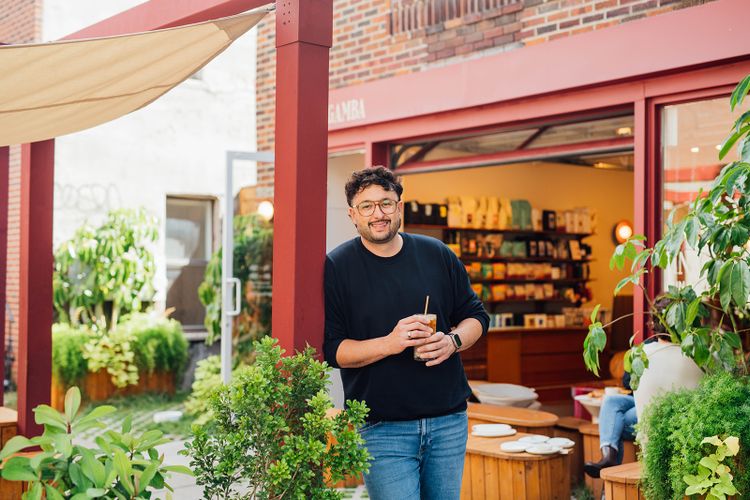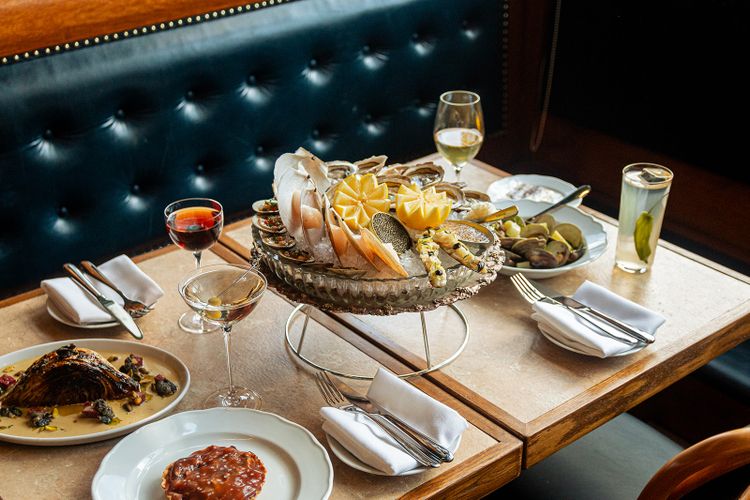- 2 likes
Kundah Hôtel: Local cuisine, Indian flavours
Kundah Hôtel
- $
- Reservation with Libro
-
325 Rue de la Couronne Québec G1K 6E7
+1 581-300-3930 -
Monday: Closed
Tuesday: Closed
Wednesday: 5:00 PM – 10:00 PM
Thursday: 5:00 PM – 10:00 PM
Friday: 5:00 PM – 10:00 PM
Saturday: 5:00 PM – 10:00 PM
Sunday: 5:00 PM – 10:00 PM
-


- Restaurant
Palaak Bergeron, bourgot kooloo, ribs vindaloo – the dishes on the menu at Kundah Hôtel, in Quebec City’s Saint-Roch district, are sure to intrigue. Let your curiosity be your guide, and it will be well rewarded at the table of chef Raphaël G. Théberge, whose cuisine skilfully blends the flavours of India with the freshness of local ingredients.
Before landing on rue de la Couronne, at the address where the Buvette Laurentien once stood, Raphaël G. Théberge carried his knives around the province for a dozen years: at Chez Boulay and Laurie Raphaël in Quebec City, at the Cabane Au pied de cochon in Mirabel, and at the wine bar Oregon in Ste-Rose. An emulation of local gastronomy, it was in India, on the other side of the world, that he finally found his calling (or his voice, as the case may be), during a trip with his girlfriend, who lived there for nearly a year.
“It was a turning point. I discovered a new way of cooking”, says the chef. “What struck me was the taste, but also the way of eating”, he continues, evoking a cuisine based on sharing and communion, but also on maximising ingredients.
On his return, the idea of opening an Indian restaurant, but using local ingredients, began to take shape. “I did a lot of research and became very interested in Indian cuisine,” says Raphaël. In October 2020, Kundah Hôtel opened its doors for take-out, due to the pandemic. “We saw it as an advantage. It allowed us to really concentrate on the cooking,” says the chef.
Indian cuisine, Quebec products
Kundah Hotel’s mantra is written in big letters above the kitchen: Indian cuisine, Quebec products.
Of course, the brigade at Kundah Hôtel (none of whose members are from India, by the way) does not pride itself on offering traditional cuisine. “We serve our dishes in a way that doesn’t misrepresent Indian cuisine. The products are local, but the presentation is Indian. We offer street food, curries, grilled things, as well as raw and fried dishes. The aim is to show that Indian cuisine is just as, if not more, diverse than European cuisine”, explains Raphaël.
A few examples: in the Bergeron Palak, cheese curds from Fromagerie Bergeron replace the traditional paneer. The mushrooms served in pakoras, those delicious little fried vegetable fritters, are grown nearby at Coupe Champignon. Whelks and surf clams from the St. Lawrence are served in a refreshing vinaigrette salad with cucumber, radish, dill and mustard. The chef also mentions sea buckthorn puri, small fried pastry shells stuffed with sea buckthorn and rhubarb, instead of tamarind, and his famous chicken achari tikka, grilled thighs marinated in panch poron (the Indian ‘five spice’) and topped with a habanero sauce, a recipe inspired by a small grill stand in New Delhi located a stone’s throw from the famous Jama Masjid mosque.
The dish is served with three sauces (hot, raita and herb chutney) and homemade chapatis (whole wheat and brown butter) or papad (or papadam, crispy fried patties made from urd bean flour), rather than naan, as the restaurant does not have a tandoor, the earthenware jar-shaped ovens used to cook tandoori and naan. “We might get one one day”, Raphaël dreams.
The Indo-Canadian marriage continues behind the bar: there is no cocktail menu, but your waiters will be happy to suggest an Indian-flavoured concoction, such as the Tequila Curcuma or the Indian Mule, a spicy version of the Moscow Mule with fresh ginger. The bar also offers a selection of microbrew beers, ciders and wines to quench your thirst.
From the Kundah Hydroelectric Project to the Kundah Hôtel
The walls of the Kundah Hôtel are wallpapered with Raphaël’s family memorabilia: images of his own motorbike trip to India with his girlfriend, which took him to the foot of the Himalayas, as well as archives of his grandfather, who worked as a welder on a hydroelectric dam in the Tamil Nadu region of southern India in the 1960s. It was the name of the dam, the Kundah Hydroelectric Project, that inspired the name of the restaurant.
And why ‘hotel’? “In India, everything is called a ‘hotel’, even the snack bars. Sometimes people come here with their suitcases, but we tell them it’s full,” laughs the chef.
Admittedly, you can’t sleep at the Kundah Hôtel, but the happy marriage of flavours and cultures and the friendly atmosphere of the place make you seriously want to stretch out the evening there.
Enjoy!
Written by Mikael Lebleu
Photography by Mikael Lebleu
